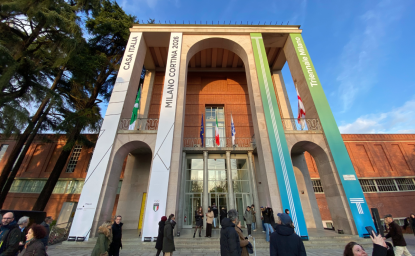"How political parties represent citizens is important," said Wilson Center Fellow Frances Hagopian, a professor of political science and Latin American studies at the University of Notre Dame. Her fellowship project examines and compares political representation in Argentina, Brazil, Chile, and Mexico.
"Latin America has never been more democratic than it is now," said Hagopian. "There have been tremendous democratic advances—from competitive elections to respect for civil liberties—yet citizens remain distrustful of politicians and political institutions." That gap can be traced to the quality and design of political representation, especially how political parties incorporate the preferences of their constituents into policy.
"We tend to view party polarization as a bad thing," she explained, "but citizens should be able to choose from policy proposal options that are clear and distinctive. If parties are out of step with their constituents on issues that matter to them, voters may turn elsewhere."
Hagopian's dissertation and first book looked at how elites used state patronage to win votes during the period of political liberalization in Brazil, and this theme resonates in her current work. "If parties only provide select material benefits for a handful of loyalists, public policy will be inefficient, fiscal discipline will be undermined, consolidating economic and social reforms will be more difficult, and voter disaffection will be sure to rise when the well runs dry," she said.
Hagopian is assessing how economic reforms have set the backdrop in shaping political representation in these countries. For example, reforms that limit the scope of state intervention in the economy make it harder for deputies to access state resources and therefore harder to offer voters patronage and pork.
The way reform took shape either created or blunted opportunities for parties to sharpen their messages to voters. Brazil's economic reforms advanced during a democratic regime. In contrast, Chile's economy was reformed under a dictatorship whose goal was "to limit demands on the state so people stopped thinking of what the state had to offer." When parties returned to the political stage, the big questions already were settled.
For her research, Hagopian surveyed 420 legislators in 16 major parties in the four countries. The legislators completed lengthy questionnaires, providing original data on their policy views, party loyalties, and meetings with constituents and other politicians. Congressional voting records, features of particular districts, and public opinion surveys complete the picture of representation.
The situation is changing and hopeful, said Hagopian. Far from the chaotic party system of the late 1980s and early 1990s, Brazil now has parties with coherent, distinctive programs and a disciplined Congress. "There are incentives for politicians to be more loyal to their parties than we gave them credit for in the past," she said. Party loyalties also run deep in Argentina and Mexico but political clientelism has not disappeared. "Politicians in Chile, Mexico, and elsewhere are still cultivating personal votes."
In the evolution of Latin American politics, military coups, revolutions, collapsed regimes, and U.S. interventions were the dramatic norms. "Now the systems are maturing," Hagopian said. "As a scholar, I [scrutinize] how these systems are evolving."


